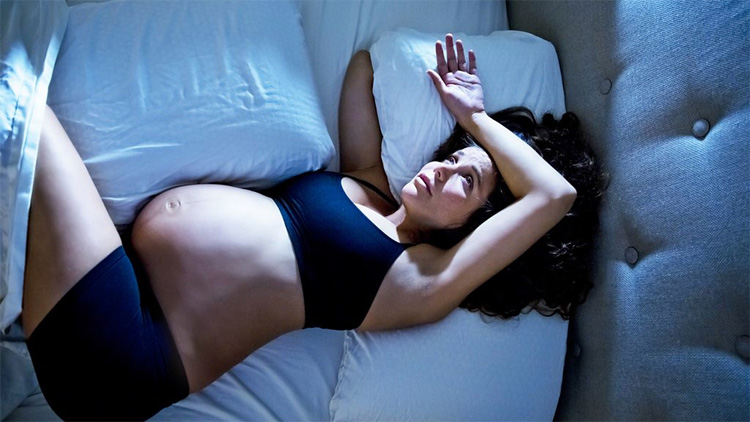Struggling to sleep during pregnancy? These expert tips could be the ultimate guide to restful nights
Navigating sleep challenges during pregnancy can be difficult due to hormonal changes, physical discomfort, emotional stress and anxiety about impending parenthood. Creating a supportive sleep environment tailored to the needs of pregnant women can help ease these issues.
1. Supportive mattress and pregnancy pillows:
In an interview with HT Lifestyle, Dr Gayathri Karthik Nagesh, HOD and Consultant – Obstetrics and Gynaecology at Manipal Hospital in Bengaluru’s Old Airport Road, suggested, “First, investing in a supportive mattress and pillows is crucial. Many pregnant women find relief by using body pillows to support their belly, back and knees, helping to reduce pressure and improve comfort in side-sleeping positions.”
Bringing his expertise to the same, Anand Nichani, Managing Director at Magniflex India, shared, “A key element in creating a conducive sleep environment is choosing a mattress that provides optimal support and pressure relief. A growing belly and changing body shape during pregnancy can lead to discomfort and disrupted sleep. Mattresses with massaging features are particularly beneficial as they address these challenges.”
He revealed, “Their ergonomic design and patented memoform technology respond to the body’s changing shape, offering precise support to alleviate pressure on the hips, spine and joints. This helps reduce discomfort, especially for side-sleepers, the recommended position during pregnancy. Additionally, these mattresses are often built with stretch fabric, which promotes breathability and ensures a cool and soothing sleep environment—a crucial factor in managing the night sweats and temperature fluctuations common during pregnancy. The gentle massage effect built into the mattress surface can also help relax tired muscles and promote circulation, which is often hindered by swelling.”
Anand Nichani added, “Pregnancy pillows offer extra support for the body, helping to alleviate pressure points. Experiment with positioning them behind the back, between the legs, or under the belly for maximum comfort. These pillows can also help reduce heartburn and back pain, common discomforts during pregnancy.”
2. Sleeping position:
Dr Gayathri Karthik Nagesh opined, ‘Sleeping on the left side enhances blood flow to the baby and relieves pressure on major blood vessels, promoting better circulation during pregnancy.”
3. Meal tip:
According to Dr Gayathri Karthik Nagesh, as the pregnancy advances, smaller lighter meals and a slightly reclined position will go a long way in improving sleep quality.
4. Cool and comfortable sleep space without distractions:
Dr Gayathri Karthik Nagesh asserted, “Temperature regulation is also important. Hormonal changes often cause night sweats, so keeping the bedroom cool and using breathable bedding can make a significant difference. Blackout curtains or sleep masks may also help by blocking out light, which can disturb sleep. Soundproofing the room or using white noise machines can minimise disruptions from outside noises.”
Anand Nichani advised, “Keep the room well-ventilated and use breathable bedding to maintain a cool, comfortable temperature. Avoid heavy blankets or duvets that trap heat. A cool sleep environment is particularly important during pregnancy as hormonal changes can lead to increased body temperature and night sweats. Ensure your bedroom is dark, quiet, and cool. Consider using blackout curtains and earplugs to reduce distractions. A quiet, dark, and cool environment promotes the production of melatonin, a hormone essential for regulating sleep.”
5. Consistent sleep schedule:
Dr Gayathri Karthik Nagesh explained, “Creating a consistent bedtime routine, like taking a warm bath, drinking a glass of warm milk, or listening to soothing music, helps signal the body that it’s time to wind down and prepare for sleep. Avoiding heavy meals, caffeine and screen time before bed further supports better sleep. Good exercise during the day while avoiding long siestas (naps) in the afternoon can also help people fall asleep more easily in those challenged by such problems.”
Echoing the same, Anand Nichani recommended, “Try to go to bed and wake up around the same time each day, even on weekends. This helps regulate your body’s natural sleep-wake cycle, making it easier to fall asleep and wake up feeling refreshed.”
Creating a comfortable, peaceful sleep environment tailored to a pregnant woman’s needs can help improve rest and alleviate some common sleep challenges during pregnancy.

